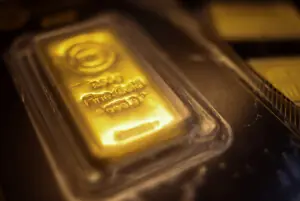Rs5,000 note: Pakistan has not scrapped its largest bill
2 min readPakistan, which is facing a severe economic and foreign exchange crisis, has not scrapped its largest bill, said interim Information Minister Murtaza Solangi on Thursday.
“This is fake,” Solangi wrote on X, formerly known as Twitter, while sharing a fake notification of a ban on Rs5,000 notes. “The Govt of Pakistan shall act against the people spreading this kind of fake news to create chaos.”
His clarification came after a notification made rounds pertaining to the government’s decision to ban the highest denomination of Pakistani rupee. The fake notification, as claimed by the minister, claimed that the use, possession, and circulation of Rs5,000 would be banned from September 30.
The development took place at a time when the country was dealing with rupee depreciation, the high cost of electricity, and inflation.
Radio Pakistan also shared the fake notification on X and called for rejecting such a behaviour.
“A fake notification is circulating on Social Media. It is responsibility of everyone to reject irresponsible behavior of disseminating fake,” said the state broadcaster.
Last week, there were reports that the government was considering a ban on Rs5,000 as it was viewed as the “biggest reason” for the smuggling of dollars to Afghanistan.
Many experts welcomed such a call for action, with economic expert Najam Ali saying that one-third of cash in circulation (10 trillion in total) was in 5,000 rupee notes.
The banknote of Rs5,000 denomination was introduced on May 27, 2006, with an aim provide to convenience and facilitate higher value transactions.
“Issuance of larger denominated note also economises the expenditure on printing of notes as higher denomination notes would reduce the consumption of lower denomination notes,” the-then State Bank of Pakistan governor Shamshad Akhtar had said.
In the past, many experts and lawmakers have demanded the finance ministry to scrap the Rs5,000 bank note to cut the flow of illicit money and reduce the size of the informal economy. But the ministry has dismissed such recommendations.
It merits here to mention that India scrapped its two biggest currency bills – the Rs1,000 and 500 notes – in November 2016 in a bid to flush out money hidden from the tax man.
For the latest news, follow us on Twitter @Aaj_Urdu. We are also on Facebook, Instagram and YouTube.

























Comments are closed on this story.